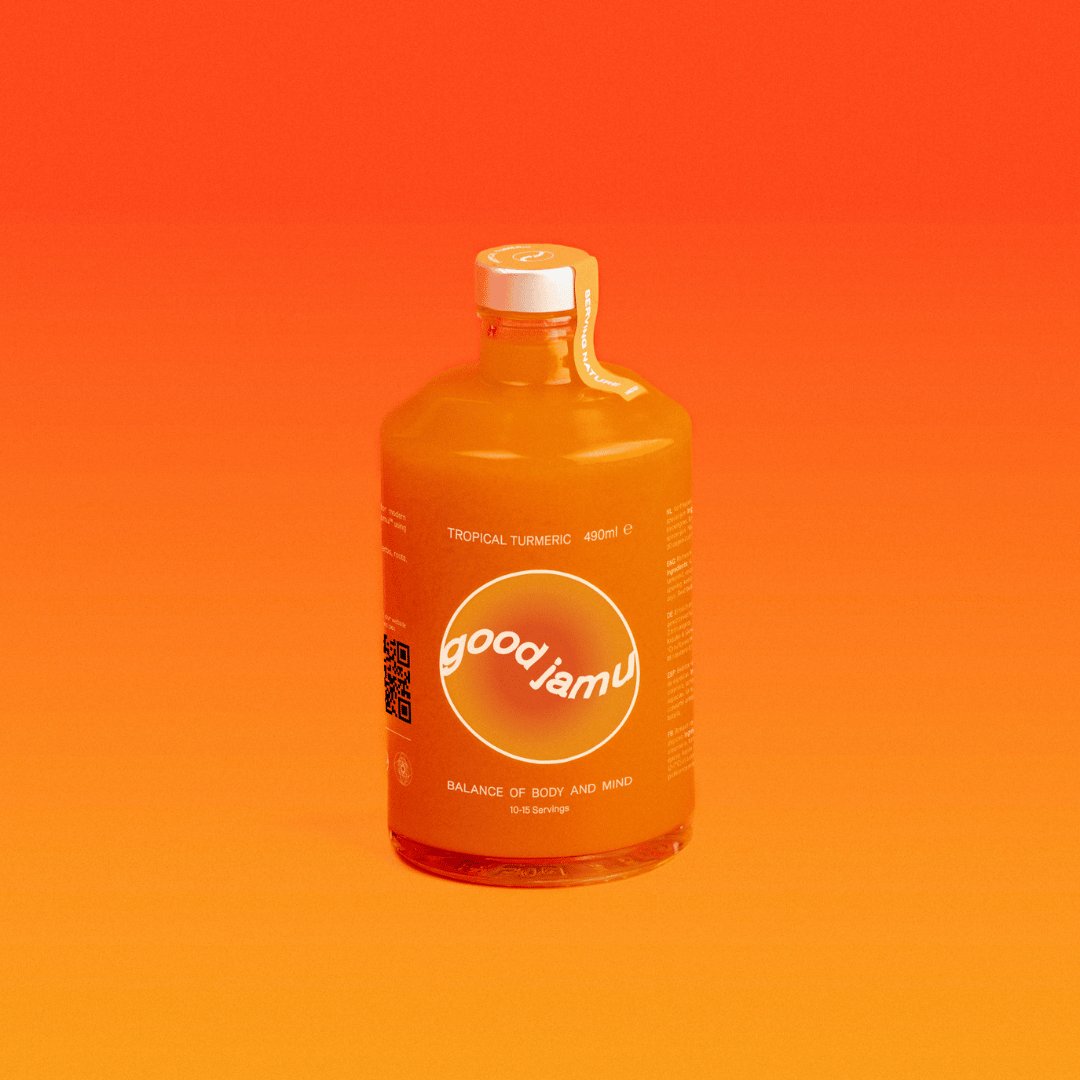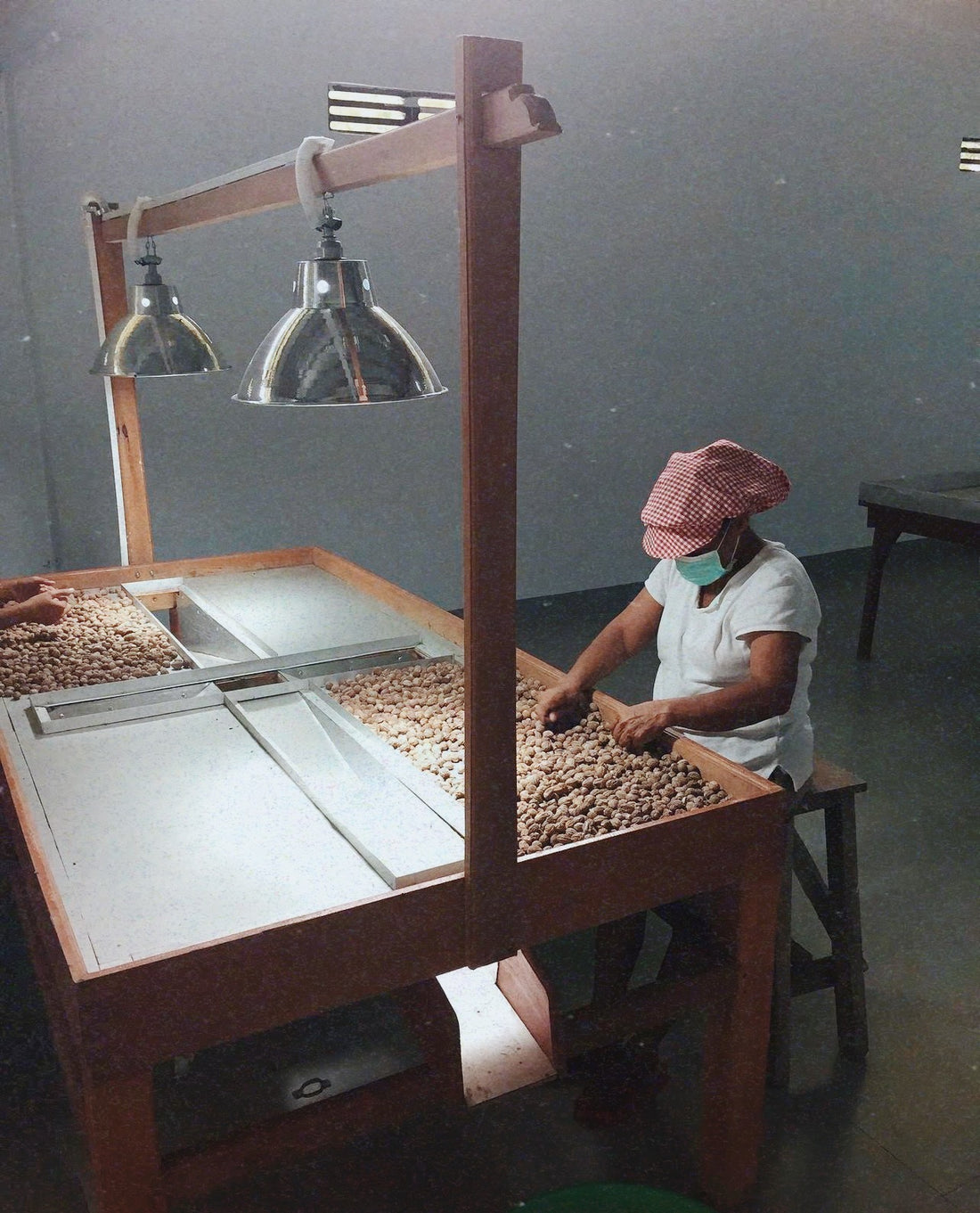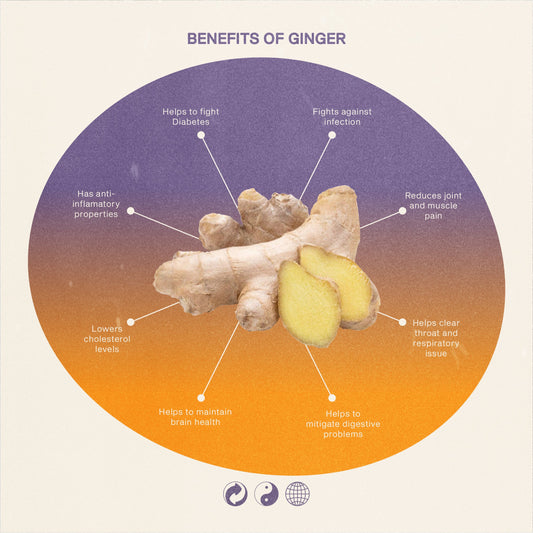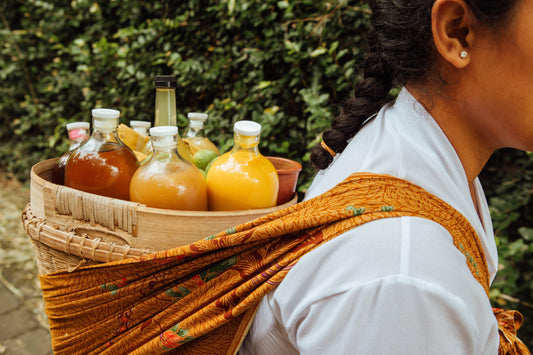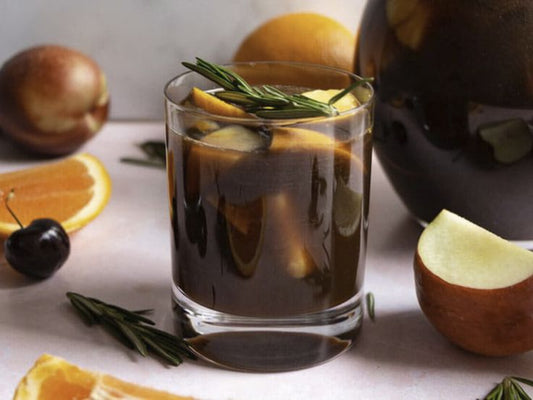At Good Jamu, we have always been committed to sourcing our spices fairly and directly from farmers. With this we not only want to be transparent, but also create a fair chain where everyone knows where our spices come from and the farmers get their fair share.
During a spice trade meeting in the Rijksmuseum we met Rico Vogel from Pacific SpiZes. He shared his vision on how he, together with his partner Peter Gruijs, work together with 400 farmers from all over Indonesia, especially the Moluccan islands, to sell their products here in the Netherlands and thus offer farmers a better life. At Good Jamu, we want to continue this tradition and give credit to the people who work the hardest.
We asked Rico a few questions about Pacific Spizes:
What is PS's vision on fair trade and how is this put into practice?
We founded Pacific SpiZes because we heard and saw the cry for help from the local Moluccan nutmeg and clove farmers.
Unfortunately, many farmers still live below the poverty line. Through Pacific SpiZes and the cooperative on Ambon, we strive to give the farmers who are affiliated a better life.
We do this, among other things, by financing projects, issuing certifications and, of course, by paying a fair price for the spices.

How does PS find the suppliers of herbs and spices in Indonesia?
Through the many visits in recent years, PS has gained many contacts in Indonesia. Not only the farmers play a major role in this, but also the local authorities and other organizations with whom we work closely. It is important that an awareness is created in Indonesia that there is a great demand for the spices in the "west". Local and central governments have been aware of this for a number of years. Similarly, since 2019, the "Spice Up the World" project has been launched in Indonesia to promote the export of its spices. Partly due to this development, PS is approached and linked to specially selected local farmers.
How does PS guarantee the quality of the products when purchasing in Indonesia?
In addition to the fact that quality plays a very important role, PS in Europe must also comply with many rules in the field of International Corporate Social Responsibility (ICSR). Transparency, sustainability, but also in terms of hygiene. We continuously draw the suppliers' attention to this. Quality comes first, but so do matters such as the prevention of child labor or the use of pesticides. The main themes that PS tries to avoid include:
1) Child labor and children's rights
2) Discrimination and Gender
3) Forced labour
4) Fair wages and living income
5) Safety and health
6) Food security and food quality
8) Land rights and access to natural resources
9) Water pollution and use of chemicals, water and energy

Why is it so important to keep the chain as short as possible?
The more links in the chain, the higher the consumer price. Because every link in this chain earns money, the farmer is ultimately the victim, because it must of course be purchased as cheaply as possible, preferably below the market price. That is why PS uses the DirectTrade formula. If you work through a local intermediary, it is difficult to investigate certain ICSR themes. PS also guarantees quality with this. A nutmeg that you find in the store can come from several parts of the world that not every consumer is aware of. PS tries to use this method to create more awareness of what the end consumer is ultimately presented with.
Food safety is the most important part of European food law. The General Food Law is the legislative framework regulation for food safety in Europe. To guarantee food safety, food products must be traceable throughout the supply chain, limiting the risks of contamination. Products that are not considered safe are not allowed access to Europe.
How does PS improve the living conditions of farmers in Indonesia?
As a member of the Royal Dutch Spice Association, PS is concerned about improving the living conditions of the farmers. By working together with the corporations, it is possible to address the various ICSR themes. Improving living conditions also goes hand in hand with a fairer price. A better price not only means improving living conditions, but it also ensures follow-up. The children of the farmers must continue to realize that they can earn a good living by taking over and maintaining the plantations. We see this as a major challenge. The fact that there is succession for the current generation of farmers is vital for the entire chain because, partly due to the hopeless situation, young people prefer to opt for a job in, for example, the IT world.

How does PS take environmental and sustainability aspects into account in the production process?
The various ICSR themes are used by PS as a guideline in many decisions. The process in origin is the most important for ensuring environmental and sustainability aspects. Such processes should be documented and monitored. Finally, all products are subject to laboratory tests. By testing at a renowned laboratory in Indonesia, we can trace whether the European requirements are met. This prevents the measurement of, for example, pesticides or other harmful substances, which ultimately also guarantees food safety.
What is the difference between the herbs in the supermarket and those that come directly from farmers?
The big difference is of course in the quality, the price, but also the origin of the spices. A good example of this is that PS gets the nutmeg and mace from Banda and Ambon. Banda is known as the birthplace of nutmeg and mace and is regarded as premium quality. Indonesia is large and nutmeg is also grown elsewhere, but the quality from Banda and Ambon is still regarded as the best quality. If you read Indonesia on the packaging, you don't know exactly where it comes from. We link a story to our products that makes it clear what the origin of our nutmeg and mace is. In the future, we think it would be fantastic to connect faces (farmers) to our products. After all, pictures say more than a thousand words.

How is the price of the products determined and how are the farmers who produce the products taken into account?
The market prices in origin are known daily. If the farmer sells his products on the local market, he catches less for his products. If the farmer knows the route to the cooperative, he will pay per kg. receive more. Furthermore, PS and her cooperative gives Rp 2000 per kg. above the market price. This is settled with the local church or mosque, which will ultimately be for the benefit of the community.

How does PS maintain the relationship with suppliers and farmers in Indonesia?
By regularly visiting the cooperative and farmers and keeping them informed of the various developments. The input of the farmers is crucial in this. The farmers are on their products making a world trip to Europe. Good communication, education and creating prospects for the future remain the most important factors in this.
What does PS' future look like and how does PS hope to contribute to fairer trade?
The last few years have been very difficult, mainly due to the Covid19 pandemic. The future of PS will mainly focus on nutmeg and mace in bulk and, in smaller quantities, the other spices that PS offers through the web shop. PS aims to optimize the process for the nutmeg and mace so that in the near future it can act as a blueprint for the many other spices that the Spice Islands produce.

Why is it important for more companies to expose the story of the spice industry?
PS thinks it is important to show (transparency) how much work it is to get the various spices from Indonesia to Europe. But actually it is even more important to indicate how much work it is for the farmers to produce these spices in a sustainable and responsible manner. As indicated earlier, the succession of the farmers is a major problem, which ultimately results in the fact that there will soon be no more farmers. This is the main reason for telling the story. In the coffee and chocolate industry, this awareness is now there, resulting in more understanding among the final consumer.
We also notice that the reins of food safety and ICSR regulations are being tightened. Such measures are good, but entail more costs, which is not always understood by the consumer. PS also wants to put more emphasis on the well-known historical background of mainly cloves and nutmeg in the Moluccas. As already mentioned, similar spices can also come from other parts of the world where the quality, not to mention the authentic taste, will be different.

How has trade between the Netherlands and Indonesia changed since the Netherlands colonized the country and how has this influenced PS's way of acting?
The spice trade has never stopped. Of course, for political reasons, it has not become easier for the Netherlands to import the spices since the abolition of the colony. PS thinks it is important that there should be more awareness when it comes to this history. In general, people do not realize that the spice trade in the Netherlands at that time did not do any harm.
What is the relationship between Good Jamu and PS?
Good Jamu and PS have been working together for some time now. Together we look for possibilities to combine our joint mission and vision as much as possible, with the idea in mind that the farmers will always be central. We both tell a story that we fully support and that will always be our motivation. We are of course very proud that our spices are used in Good Jamu products !
